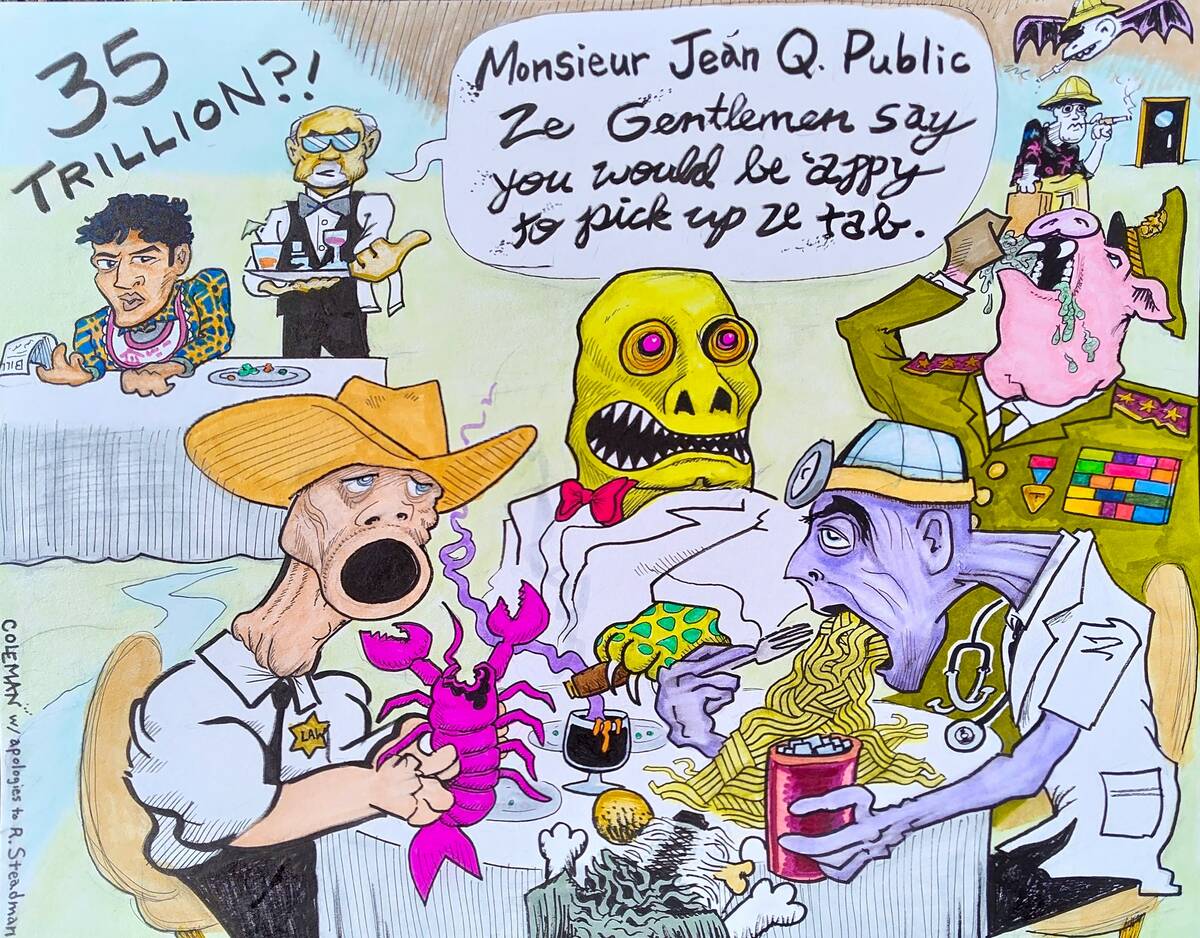EDITORIAL: Message to Washington: It’s the spending, stupid!
The Biden-Harris administration wants the public to believe the country is in great shape economically. Yet the budget deficit tells a story of unsustainable spending.
In the past fiscal year, which ended on Sept. 30, the federal government doled out $1.83 trillion more than it took in. That red ink boosted the national debt to well more than $35 trillion.
Last year, the federal government realized almost $5 trillion in revenue. That was an 11 percent increase over the previous year, or around $480 billion. Individual income tax collections jumped by 11 percent. Collections from corporate income taxes soared by 26 percent.
There’s a lesson here. Lower tax rates can boost tax collections if they increase economic activity. A growing economy can send tax revenues soaring.
More federal tax revenue, however, can’t fix the what’s driving the debt and deficit — ever-higher spending. Last year, outlays soared by almost $700 billion. Total federal spending was $6.75 trillion, according to the Wall Street Journal.
It’s virtually impossible to fathom numbers that large, so here’s some context. In 1974, total federal spending was under $270 billion. In 1994, it was $1.46 trillion. In 2004, it was $2.29 trillion. In 2014, it was $3.51 trillion. Those statistics are from the American Presidency Project at UC Santa Barbara.
Federal spending is about 25 times higher today than it was 50 years ago. It’s almost double what it was just a decade ago.
If you really want to be shocked, consider 1934 when federal spending was $6.5 billion. The federal budget is around 1,000 times bigger than it was 90 years ago. This is exponential growth.
Unfortunately, many Americans aren’t interested in trimming the spending. A sizable majority of spending goes to Social Security, Medicare and other health care programs. Yet interest on the debt — the result of decades of ignoring the issue — now threatens to elbow out other initiatives.
Democrats have spent decades claiming that tax cuts drive the debt. Yet in a fiscal year when federal revenues increased 11 percent, pols in Washington gobbled up the increase — and more. It’s never enough to sate the appetite inside the Beltway for bigger government.
Unfortunately, the debt and deficit can’t be wished away. At certain levels, they become a drag on the economy and future economic growth. Excessive government spending is a major contributor to inflation, too.
Federal spending is an all-hands-on-deck problem. Elected officials need to level with the American people, and voters must elect those who are willing to embrace fiscal sanity before it’s too late.
The views expressed above are those of the Las Vegas Review-Journal.

















